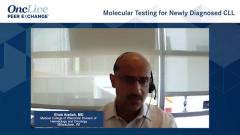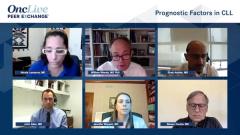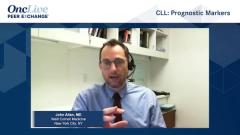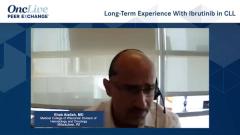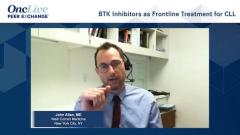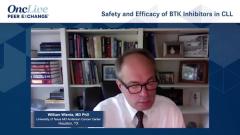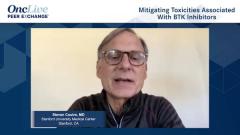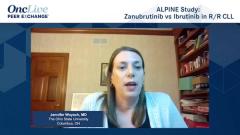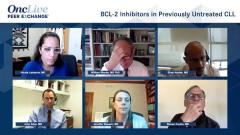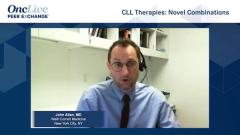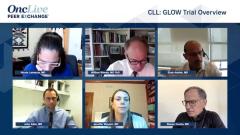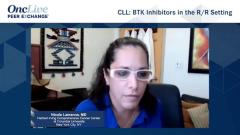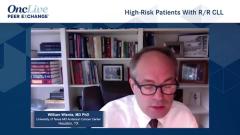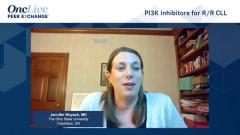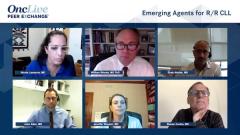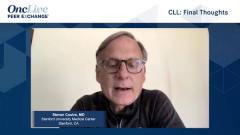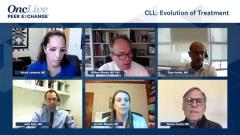
CLL: Evolution of Treatment
William Wierda, MD, PhD, leads a panel of experts in a discussion pertaining to the treatment of chronic lymphocytic leukemia (CLL), beginning with the evolving treatment landscape.
Episodes in this series

William Wierda, MD PhD: Hello, and welcome to this OncLive® Peer Exchange® titled “Refining Treatment Approaches for Chronic Lymphocytic Leukemia.” I’m Dr Bill Wierda from [The University of Texas] MD Anderson Cancer Center in Houston, Texas. Joining me in this discussion are my colleagues Dr John Allan, Dr Ehab Atallah, Dr Steve Coutre, Dr Nicole Lamanna, and Dr Jennifer Woyach.
Today we’re going to discuss several topics pertaining to the treatment of patients with chronic lymphocytic leukemia [CLL]. We’ll discuss the latest research in the field, including updates from the 2021 ASCO [American Society of Clinical Oncology] and EHA [European Hematology Association] virtual meetings and the impact of recent clinical trial data on making treatment decisions for your patients.
Let’s get started on the first topic. We’ll first talk about first-line therapy and then treatment for relapsed and refractory disease. We’ve seen a lot of change in treatment over the past several years with the introduction and development of targeted therapy. Let’s start with Dr Coutre. I remember working with you years ago on a meeting where we were going over alemtuzumab, or Campath, and its use for residual disease. Things have changed remarkably since that time. Maybe you can start with some of your thoughts on how treatment has changed and how we’re improving outcomes and survival for patients with CLL.
Steven Coutre, MD: Sure. Thanks, Bill. Thankfully, things have changed. We all have the impression in our own practices, along with anyone who treats CLL, that we’ve changed the natural history of the disease. That goes without saying. Our public statistics lagged behind. If you look at things like the CLL International Prognostic Index or the Rai staging system and look at the expected survival, then you need to remember that reflects the chemotherapy-immunotherapy era.
There was an interesting abstract presented at the 2021 ASCO Annual Meeting that tried to update that a bit. One example of the progress that’s been made: They looked at the late 80s compared with 2010 moving forward and the 10-year survival rates, and they found that men improved from less than 50% to over 70%. It was equally impressive for women. We’ve made tremendous advances with the new therapies. As a result, our patients are living longer.
William Wierda, MD PhD: I frequently get asked, “I have a new diagnosis of CLL. What does my future hold?” At academic centers, we tend to see younger patients. They frequently ask me what their future looks like. I’m sure you get questions like that, Jennifer. What’s your usual response? How do you manage those types of questions with your patients?
Jennifer Woyach, MD: That’s probably the first question we get when we see a new patient. The first thing I say is, “Make sure you don’t look on the internet, because everything you see regarding survival in CLL is very outdated.” Even the abstract you’re talking about is a few years old. The survival data go up to 2017. A lot of those patients still haven’t received novel agents as their frontline treatment. I usually tell people, if they’re older at diagnosis, that their life span will likely not be affected by their diagnosis of CLL. That was shown quite a few years ago. For younger people, that may not be the case yet. But as we continue to develop newer and better therapies, most of those patients will live their normal life span.
William Wierda, MD PhD: Dr Allan, if a patient comes in and asks, “How long am I going to live with my CLL?” which I’m sure you’ve heard before, how do you address that type of question?
John Allan, MD: It’s important to reset their focus. Many times they hear leukemia and think, “I’ve got leukemia. This might be a life-limiting thing for me.” You have to reset that and refocus them. They need to be staying up with their colon cancer screening, their prostate cancer screening, their other cardiovascular risk factors or diabetes controls, and things like that. I try to set the horizon much further out than they may have anticipated.
I have been in scenarios where a very low-risk CLL patient was denying these things and not doing them. The reason was, “Because I have CLL.” That’s a thing we battle with as physicians, as we try to encourage our patients to look at this horizon to be encouraged by all the data coming out, to start to take care of themselves long term and not let other things come in the way of their longevity or health. That’s 1 of the big things I do when I start to talk to patients about the prognosis and expectations going forward. I agree that the vast majority of our older patients, especially, are probably going to be living normal life expectancies, and CLL is potentially not something that’s a cause of death for them.
TRANSCRIPT EDITED FOR CLARITY


